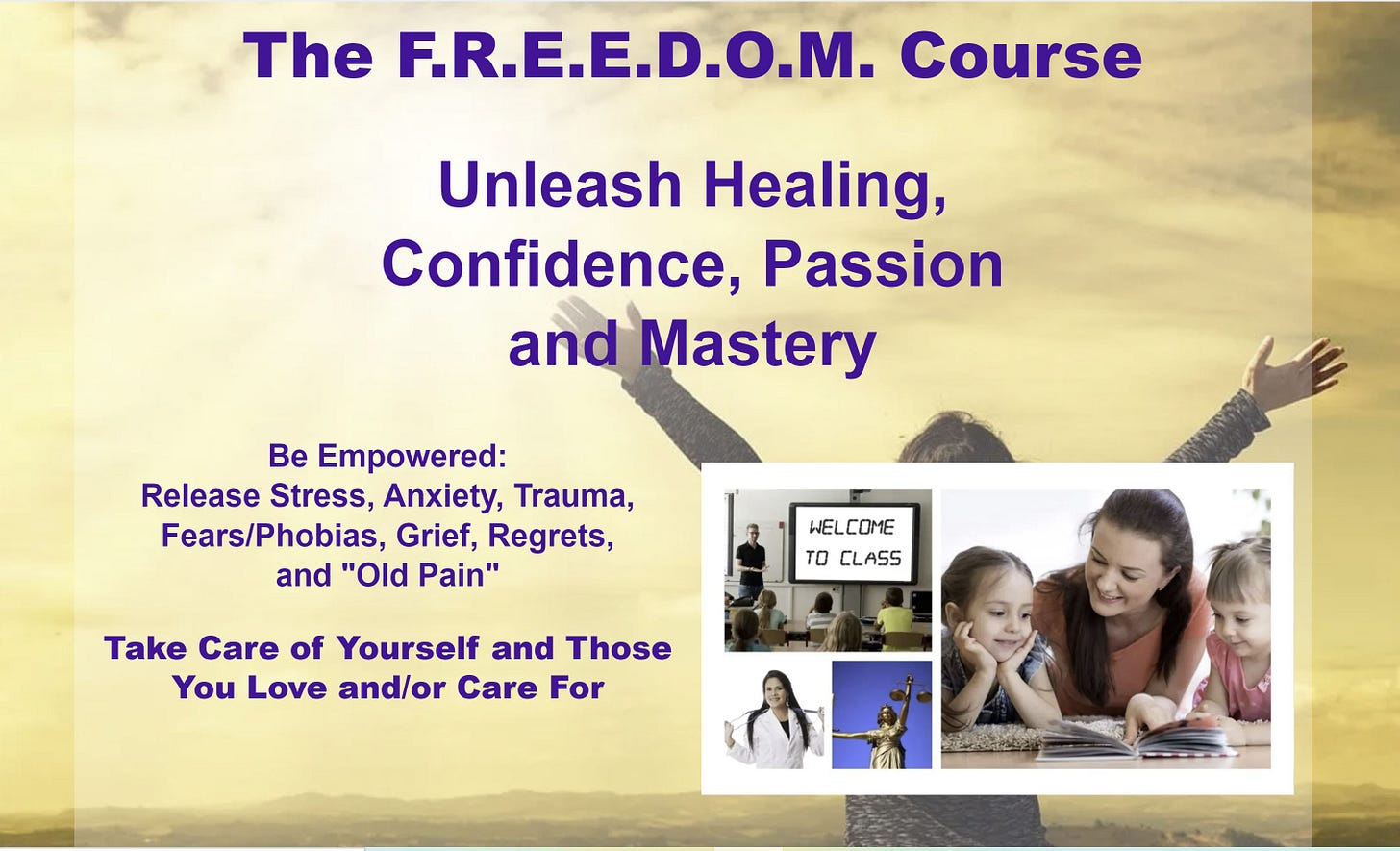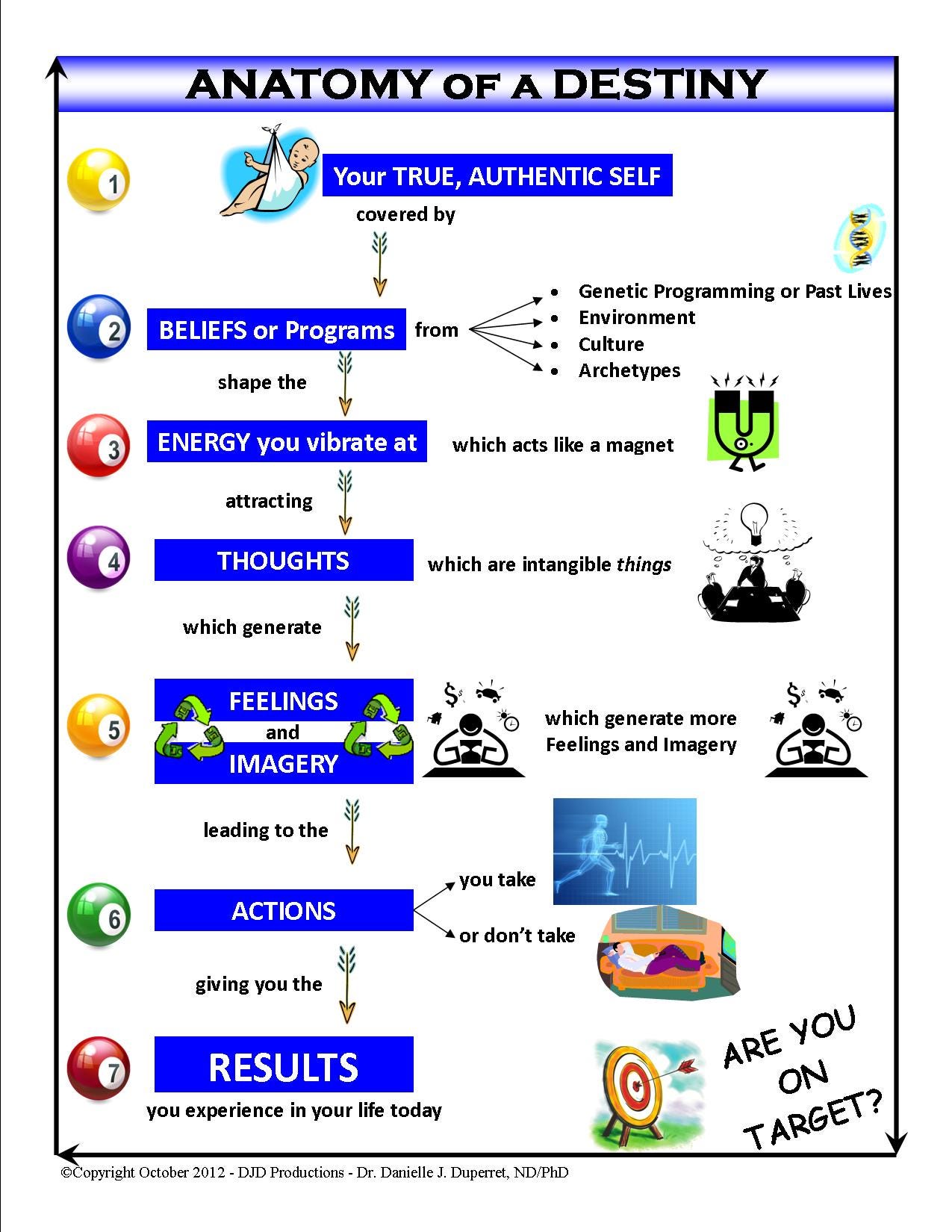PNEI # 7 - The Power of Negative Thinking - Oops, No Electricity
10K in 30 Days New Webinar Replay
Greetings to all,
The power went off about 30 min. ago, which means:
no AC,
I cannot cook my dinner as the stove is electric,
the sun is setting and the lights don’t work,
no modem (I am using my phone’s hotspot) and
the computers are running on batteries.
NOT a good idea to have an all electrical house. Power should be restored in about an hour.
In my December 19, 2023 post, I discussed “Positivity Run Amok.” At the time, I didn’t fully grasp how deep this issue could go. Below are a few excerpts from Gabor Maté’s book When the Body Says NO, particularly from Chapter 18, “The Power of Negative Thinking.”
According to Maté, positive thinking is neither valid physiologically nor healthy psychologically. Research shows that refusing to confront so-called negativity—what is actually happening—can have dire physiological consequences.
There seems to be a dance, a push-pull dynamic between what is happening and our ability to respond to it. It must flow. When we block our emotions, the flow stops, which might trigger a physiological response, sometimes years later.
With the Tapping Techniques, we talk about energy being frozen. The Tapping restores the flow.
While research points to emotions, especially repressed ones, as a major factor in many diseases, we still tend to favor “objective” tests and pills over introspection and emotional healing.
Have you heard the story of Nasruddin, a Sufi 12th-century fool and sage, who rode his donkey backward? (I have a slide of his statue from when I visited Turkey in 1977.) Nasruddin’s stories, originating in the Turkic regions about 700 years ago, are famous for conveying spiritual truths through humor and parables. Spirit jesters like him were often depicted sitting backward on a donkey or horse.
The Lost Key Story
One night, a man sees Mulla Nasruddin crawling on all fours under a streetlight, searching frantically for something.
“Mulla, what have you lost?” the man asks.
“I’m searching for my key,” Nasruddin replies, sounding anxious.
“We’ll help you look,” the man offers, and soon they are all on their knees under the streetlight, looking for the lost key. After some time, the man asks, “Mulla, do you remember where exactly you dropped the key?”
Nasruddin waves toward the darkness and says, “Over there, in my house. I lost the key inside my house…”
Shocked, the man exclaims, “Then why are you searching out here in the street?”
“Because there’s more light here than inside my house,” Nasruddin answers casually.
This story has many interpretations, but one key lesson is that the answers are often found within ourselves, even though it may be a dark and confusing place to search. It’s easy to look outside in the light, hoping to find solutions through religious beliefs, others’ opinions, material things, or attachment to gurus.
Isn’t this often what we do in allopathic medicine? Searching outside, where the light shines, rarely yields the key to health. More often than not, we need to look inside, where it’s dark and murky.
Many factors contribute to disease: toxins, genetics, environment, emotions, and more. All should be investigated, including the stress caused by repressed emotions.
Disease is an expression of internal disharmony. Imagine a classical concert where one instrument is out of tune—the entire symphony is affected. Similarly, our body-mind requires balance and flow.
Maté shares that many in hospice care express bewilderment: “I have always been a positive thinker; I’ve never given in to pessimistic thoughts. Why did I get cancer?” Some people do everything “right”—they eat healthily, don’t smoke, don’t drink. I had such a client. Sadly, he didn’t want to address his emotions, and he passed away. Would it have made a difference? We’ll never know.
Maté advocates for genuine thinking. “As soon as we qualify the word ‘thinking’ with the adjective ‘positive,’ we exclude those parts of reality that strike us as negative… Genuine positive thinking begins by including all our reality; it is guided by the confidence that we can trust ourselves to face the full truth, whatever that full truth may turn out to be.”
Dr. Michael Kerr notes that compulsive optimism is one way we avoid confronting our anxiety. This form of positive thinking is a coping mechanism born of childhood hurt. When an adult remains unaware of this residual defense, it becomes a life principle.
To heal, it’s essential to gather the strength to think negatively—a willingness to consider what’s not working, what’s out of balance, what’s not flowing.
What is my body saying “no” to? Not asking these questions is a source of stress in itself. The “positive thinking cult,” as I’ve come to call it, operates on the unconscious belief that we’re not strong enough to handle reality. This unconscious fear engenders a state of childhood apprehension.
A study showed that breast cancer patients who engaged in lengthy pleasant daydreams or lived in a fantasy world had a poorer prognosis than those who were more reality-based.
There are two sides to the idea that “positive emotions lead to good health”:
Genuine joy and satisfaction enhance physical well-being.
“Positive” states of mind generated to tune out psychic discomfort lead to lower resistance to illness.
Maté argues that when one lacks the capacity to feel heat, the risk of being burned increases. Facing honest negative thoughts will lead to areas of pain and conflict that were previously shunned.
I’m rethinking my Pollyanna attitude—a person characterized by irrepressible optimism and a tendency to find good in everything. I grew up reading all the Pollyanna books—several times—as well as attending children’s church, where we learned to “be and do good.”
I trained myself to find the silver lining in every situation, which led me to stay in an abusive situation for 20 years. I was shocked when others saw it for what it was.
Today, we have New Age positive thinking, where we “cancel, cancel” every negative thought. When situations get difficult, we rationalize that we are “just learning lessons.”
Look at our world today! This positive thinking has led us to close our eyes to horrors like child trafficking because it’s too painful to confront.
Stuffing things down and becoming numb is a learned behavior. Babies don’t do that. When they have a problem—a wet diaper, hunger, discomfort—they make it known loud and clear. Over time, we learn to repress these emotions until later in life, when the body finally says “no more.”
Hans Selye, who coined the term stress, said, “Most of our tensions and frustrations stem from compulsive needs to act the role of someone we are not.” Removing the rose-colored glasses through which we view the world may reveal that we are not as strong as we believed. That can be scary, yet it’s the first step toward healing.
What beliefs have we created to please others—starting with our parents, teachers, religious leaders, and peers? Is that who we truly are?
About 12 years ago, I created the following chart:
I still use it to this day with my clients, to go from Where They Are to Who They Are.
If you would like to have a discussion on the subject, contact me for a confidential and complimentary chat.
Financial Health with the Legacy Program
The short videos I made this week on TikTok, IG, FB, and YT highlighted the many perks that come with the program.
The community is growing by leaps and bounds—over 37,000 participants—where people are collaborating toward a common goal: making the world a better place by helping others succeed financially.
The business and mindset coaching—all free—is OUTSTANDING! We receive daily inspiration on how to conduct a successful business, with a step-by-step approach and the tools to make it happen. It’s not just motivational; it’s pragmatic: Earn while you learn.
Here is the replay of the last public webinar. It contains training, testimonials and QnA.
To find out more, get the 10K in 30 Days Blueprint.
Make it a great Labor Day weekend and
LIVE with PASSION, PURPOSE and DELIGHT!
Danielle
Danielle J. Duperret, ND/PhD – Quantum BreakThrough Coach – 702-900-6730
Physical, mental and financial wealth makes life easier and more fun!
Website: https://daniellejcoaching.com
10K in 30 Days Blueprint: https://www.dynamicmomsbuildwealth.com/
Let’s chat (complimentary and confidential) : https://daniellejcoaching.com/calendar
Email: danielle@daniellejcoaching.com
My books/courses are on my Academy website: https://hha-usa.com/store






